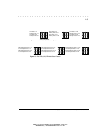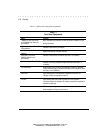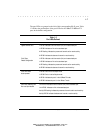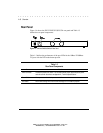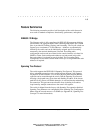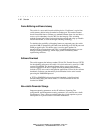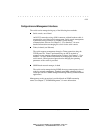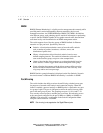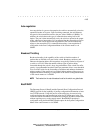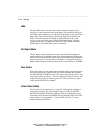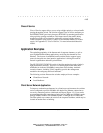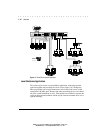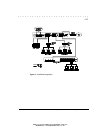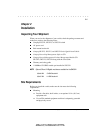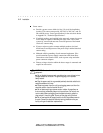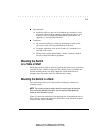
. . . . . . . . . . . . . . . . . . . . . . . . . . . . . .
1-13
Compaq SW3322/SW3323/SW3324 Dual-Speed Switch User Guide
Writer: Fran Spragens Project: Overview Comments: 355307-002
File Name:3324_1.doc Last Saved On:3/16/99 11:31 AM
Auto-negotiation
Auto-negotiation is a process that permits the switch to automatically select the
operational modes of its ports. Upon first being connected, the switch detects
the speed of the connected network to the port, either 10Mb/s or 100Mb/s. In
addition, the switch detects the type of communication setting, half or full
duplex. The port is then automatically set by the switch to operate in the proper
mode, without user intervention. It is not required that the network device to be
connected to the switch support auto-negotiation as the switch automatically
adjusts to the network device’s communication settings. Auto-negotiation is
configurable in the Port Configuration Menu of the console menus or via
SNMP.
Broadcast Throttling
Broadcast throttling is the capability of the switch to limit the number of
packets that are flooded to all ports on the switch. Broadcast, multicast, and
unknown destination address unicast packets are typically flooded to all ports of
a switch or a VLAN. When the number of these types of packets being
forwarded through the switch is large, the performance of the switch can suffer
greatly. A programmable broadcast cutoff rate parameter allows a rate threshold
to be set in the switch for the forwarding of broadcast and unknown destination
address packets. If the cutoff rate is exceeded, further packets of these types are
dropped. Broadcast throttling is configurable in the Switch Configuration menu
of the console menus or via SNMP.
NOTE: The threshold on the rate of broadcast is set for the switch on a global basis.
BootP/DHCP
The Bootstrap Protocol (BootP) and the Dynamic Host Configuration Protocol
(DHCP) provide for the capability of passing configuration information to hosts
on a TCP/IP network. Using this process, network devices do not need to be
configured before they can communicate using the TCP/IP protocol suite. The
switch uses BootP and DHCP to automatically configure IP address information
without requiring access to the console menus. BootP/DHCP operation is
configurable using the BootP/DHCP Enable option in the System Configuration
Menu of the console menus or via SNMP.



